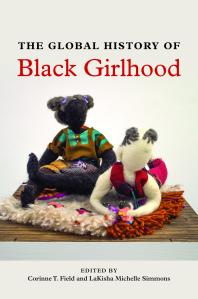Hello and welcome back to another blog post! I hope you all enjoyed last month’s post on Black History Month. In March, we’ll celebrate women— another group of people who make our world richer and brighter. Continue reading to learn about International Women’s Day, its history, and celebrations happening in Vancouver this year.

What is International Women’s Day?
According to the official International Women’s Day organization, International Women’s Day (IWD) is “a specific day dedicated to the advancement of women worldwide.” It occurs every year on March 8, and its goal is to honour the achievements of women across many areas of their lives. Social, economic, cultural, and political spheres all contain women who have contributed their knowledge and talents. IWD also serves as a day of advocacy to continue pushing for greater gender equality. The International Women’s Day organization encourages people to reflect on progress and commit to taking positive action towards gender equality.
The Government of Canada has created a theme for International Women’s Day 2025. The theme is “Strength in every story.” The aim of this theme is to highlight the importance of amplifying all women’s voices, especially those who continue to face intersectional barriers. Instead of only celebrating the stories of the most privileged women, IWD seeks to uplift all cisgender and transgender women, recognizing that every woman has a unique story to tell.
History of International Women’s Day
The history of International Women’s Day is described here on the official IWD website. Made up of collective action by many women, International Women’s Day began during the first wave of feminism. This “first wave” of the feminist movement occurred from the late 18th century to the early 20th century and included early women’s rights activists. These women fought for advancements like voting rights (also referred to as women’s suffrage) and access to education for girls. Some notable first wave feminists include:
- Mary Wollstonecraft, who wrote activist texts including A Vindication of the Rights of Women and Thoughts on the Education of Daughters. Learn more about Mary Wollstonecraft’s work here.
- Sojourner Truth, a Black woman who was born into slavery in New York state. After escaping enslavement, she traveled the country to share her faith in God and advocate for women’s rights. Her most famous speech, titled “Ain’t I a Woman?”, addresses the racism that impacts Black women in addition to gender inequality. Learn more about Sojourner Truth here.
- Emmaline Pankhurst, a leader of the British movement for women’s suffrage. She formed the Women’s Social and Political Union (WSPU) which worked towards achieving voting equality. Her philosophy of “deeds, not words” shifted the suffrage movement towards action-oriented public demonstrations. Learn more about Emmaline Pankhurst here.
The first International Women’s Day was held in 1911 in Austria, Denmark, Germany, and Switzerland. More than one million men and women attended rallies in these countries. After the first year of rallies, countries around the world began marking IWD as an official holiday throughout the 20th century. Women have taken great strides towards achieving gender equality in the last 100 years. Celebrities, governments, organizations, and major brands now support IWD each March. Even so, much work remains to be done. Continue reading to learn about ways to take action this year.
International Women’s Day 2025 Events
UBC is hosting a variety of events throughout March. See a list of all events here.
On March 14, the UBC Mental Health and Wellness for Women in STEM Conference will take place. The conference will act as a space for women in STEM fields at UBC. Speakers and workshops will address the importance of considering mental and physical wellbeing while working in male-dominated fields.
On March 22, Dr. Shohini Ghose will provide a book singing and talk. Dr. Ghose’s book Her Space, Her Time: How Trailblazing Women Scientists Decoded the Hidden Universe tells the stories of women physicists and astronomers who discovered fundamental rules of the universe, often not having their critical contributions acknowledged.
In Vancouver, the IWD Women’s March will take place on Saturday, March 8, from 1:00–4:00pm. The march will begin at the Vancouver Art Gallery North Plaza. This march values intersectional feminism, referring to the diverse experiences that women have when their identity as a woman overlaps with another marginalized identity. The march stands in solidarity with gender-diverse people and with all marginalized communities.
The City of Vancouver also offers local information about IWD.
UBC Library Materials
Want to learn more about IWD? Check out some relevant titles available through the library!





Adichie, C. N. (2014;2015;). We should all be feminists. Anchor Books. [Available at UBC Libraries]
Hart, J., Project Muse, & De Gruyter. (2023). A national park for women’s rights: The campaign that made it happen (1st ed.). Three Hills, an imprint of Cornell University Press. [Available at UBC Libraries]
hooks, b. (2015). Feminism is for everybody: Passionate politics. Routledge. https://doi.org/10.4324/9781315743189
Khader, S. J. (2024). Faux feminism: Why we fall for white feminism and how we can stop. Beacon Press. [Available at UBC Libraries]
Shetterly, M. L., Conkling, W., Freeman, L., & Shetterly, M. L. (2018). Hidden figures: The true story of four black women and the space race (First ed.). Harper, an imprint of HarperCollinsPublishers. [Available at UBC Libraries]
Web Resources Cited
Government of Canada. (2024, March 18). International Women’s Day. Government of Canada. https://www.canada.ca/en/women-gender-equality/commemorations-celebrations/international-womens-day.html
International Women’s. (n.d.-a). Learn about International Women’s Day (IWD). International Women’s Day. Retrieved March 6, 2025, from https://www.internationalwomensday.com/About-IWD
International Women’s Day. (n.d.-b). What’s the timeline of International Women’s Day? International Women’s Day. Retrieved March 6, 2025, from https://www.internationalwomensday.com/Timeline
The Editors of Encyclopaedia Britannica. (2025a). Emmeline Pankhurst. In Britannica. https://www.britannica.com/biography/Emmeline-Pankhurst
The Editors of Encyclopaedia Britannica. (2025b). Mary Wollstonecraft. In Britannica. https://www.britannica.com/biography/Mary-Wollstonecraft
The Editors of Encyclopaedia Britannica. (2025c). Sojourner Truth. In Britannica. https://www.britannica.com/biography/Sojourner-Truth














